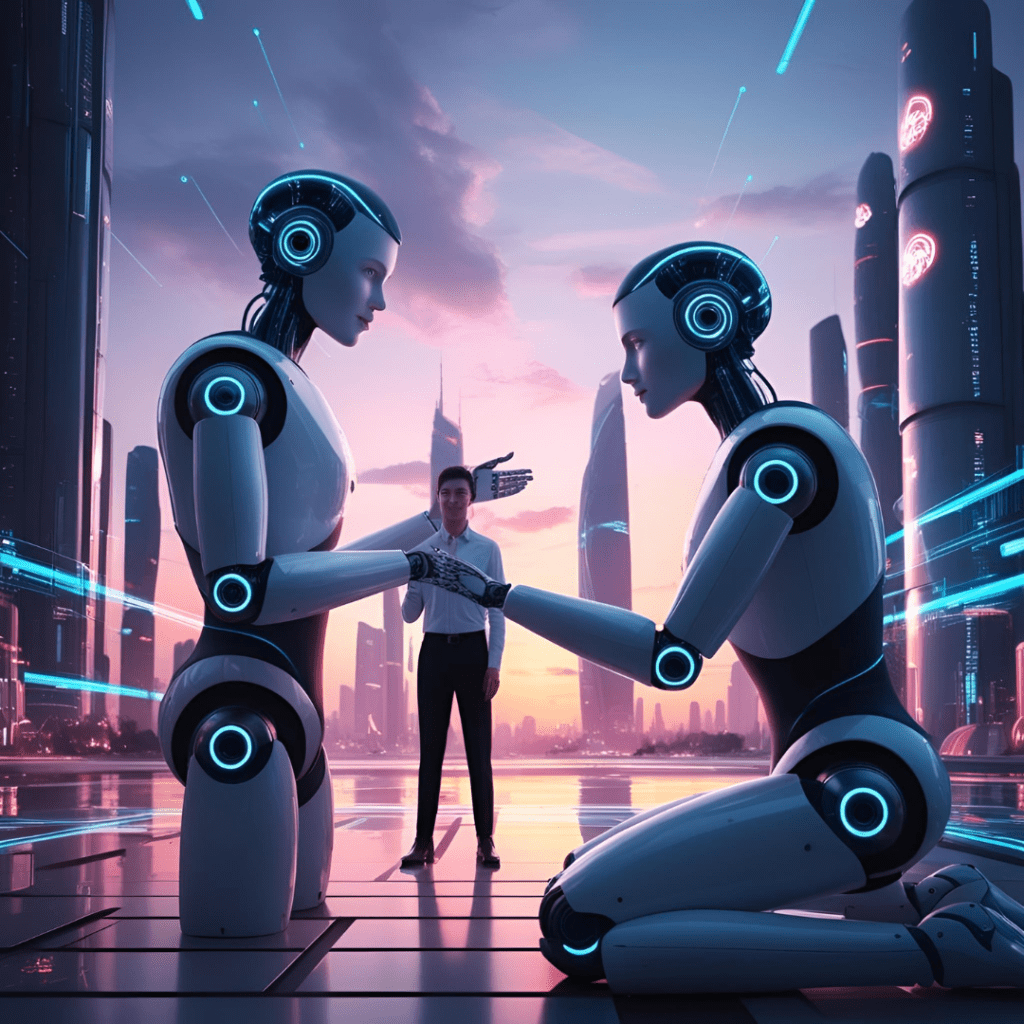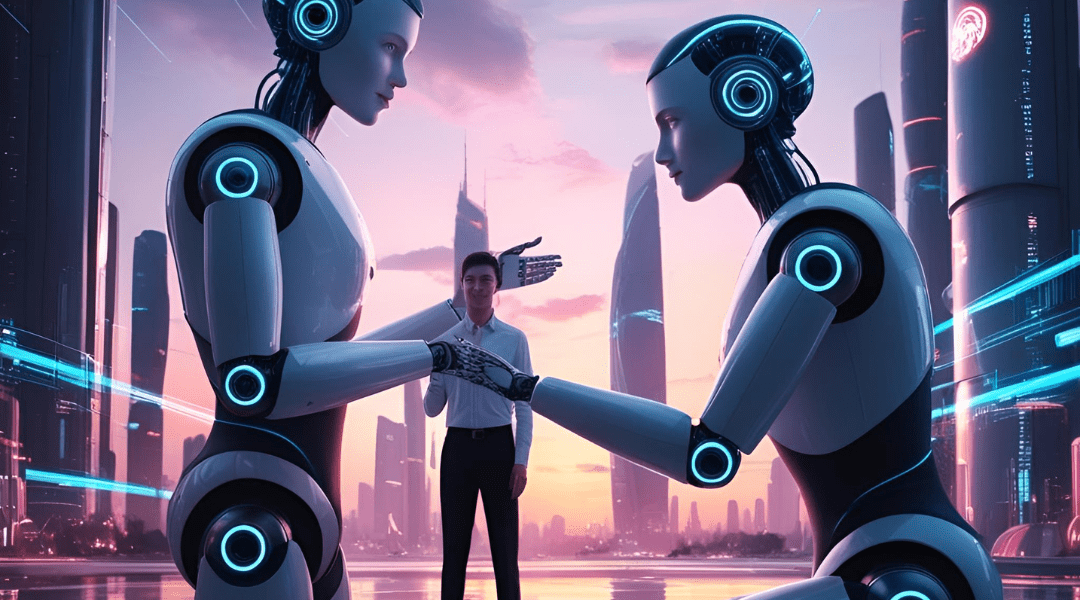The Future of Artificial Intelligence

Artificial Intelligence (AI) has rapidly evolved from a futuristic concept to an integral part of our daily lives. From smart assistants like Siri and Alexa to self-driving cars and advanced robotics, AI is revolutionizing industries and transforming the way we work, communicate, and interact with technology. As AI continues to develop, it raises questions about its potential, ethical implications, and the future of human society. This article explores the advancements in AI, its impact on various sectors, and what lies ahead in this technological revolution.
The Evolution of AI
AI has come a long way since its inception in the mid-20th century. Initially, AI was limited to rule-based systems and simple computations. However, with the advent of machine learning and deep learning, AI systems can now analyze vast amounts of data, recognize patterns, and make complex decisions. Modern AI applications leverage neural networks, natural language processing (NLP), and computer vision to achieve remarkable feats that were once considered impossible.
One of the most significant breakthroughs in AI is Generative AI, exemplified by models like ChatGPT, DALL-E, and Bard. These models can generate human-like text, images, music, and even code, opening new possibilities in content creation and automation. AI-powered chatbots and virtual assistants are becoming increasingly sophisticated, offering personalized experiences to users worldwide.
AI in Various Industries
The impact of AI is widespread, touching nearly every sector and redefining traditional practices. Here are some industries where AI is making a significant difference:
1. Healthcare
AI is revolutionizing healthcare by improving diagnostics, drug discovery, and patient care. AI-powered algorithms can analyze medical images, detect diseases like cancer at an early stage, and assist doctors in making more accurate diagnoses. Robotic surgeries and AI-driven treatment plans are enhancing patient outcomes. Moreover, AI is helping pharmaceutical companies speed up drug development, as seen during the COVID-19 pandemic.
2. Finance
AI-driven algorithms are transforming the financial sector by detecting fraudulent transactions, automating trading strategies, and offering personalized financial advice. Robo-advisors are helping investors make data-driven decisions, while AI-powered chatbots provide instant customer support. Predictive analytics is also enabling banks to assess credit risks more accurately.
3. Education
AI is enhancing the learning experience through personalized education platforms, virtual tutors, and automated grading systems. Adaptive learning software tailors educational content to individual students’ needs, improving engagement and comprehension. AI-powered language translation tools are also breaking down language barriers, making education more accessible worldwide.
4. Transportation
The transportation industry is experiencing a revolution with AI-powered self-driving cars, smart traffic management systems, and predictive maintenance for vehicles. Companies like Tesla, Waymo, and Uber are investing heavily in autonomous vehicles, aiming to make transportation safer and more efficient. AI-driven logistics and supply chain management systems are optimizing delivery routes and reducing operational costs.
5. Entertainment & Media
AI is transforming content creation in the entertainment industry. Streaming platforms like Netflix and Spotify use AI to recommend personalized content based on user preferences. AI-generated scripts, music compositions, and deepfake technology are pushing the boundaries of creativity. Social media platforms use AI to moderate content and detect fake news, ensuring a safer online environment.
The Ethical and Societal Challenges of AI
While AI offers numerous benefits, it also raises significant ethical and societal concerns. Some of the key challenges include:
1. Job Displacement
Automation powered by AI is replacing traditional jobs, leading to concerns about unemployment. While AI creates new opportunities, many workers may struggle to transition into AI-driven industries. Governments and businesses must invest in reskilling and upskilling programs to help workers adapt to the changing job market.
2. Bias and Fairness
AI systems can inherit biases from the data they are trained on, leading to unfair and discriminatory outcomes. Biased AI algorithms have been observed in hiring processes, law enforcement, and lending practices. Addressing bias in AI requires diverse datasets, transparent decision-making, and rigorous testing.
3. Privacy and Security
AI-powered surveillance and data collection raise concerns about privacy. Governments and corporations have access to vast amounts of personal data, leading to potential misuse and breaches. Strong data protection regulations and ethical AI policies are essential to ensure user privacy and security.
4. Ethical AI and Decision-Making
AI is increasingly being used in critical decision-making, such as criminal justice, healthcare, and finance. However, ethical dilemmas arise when AI makes life-changing decisions without human oversight. Establishing clear ethical guidelines and accountability mechanisms is crucial to ensure responsible AI deployment.
The Future of AI: What Lies Ahead?
The future of AI is promising, with advancements in several key areas:
1. General AI (AGI)
Currently, AI is limited to narrow tasks, excelling in specific domains but lacking general intelligence. Researchers are working toward Artificial General Intelligence (AGI), which aims to perform any intellectual task that a human can. If achieved, AGI could revolutionize industries but also pose existential risks.
2. AI and Human Collaboration
Rather than replacing humans, AI is expected to enhance human capabilities. AI-powered tools will assist professionals in various fields, improving efficiency and productivity. Collaborative AI systems will enable humans and machines to work together seamlessly.
3. Explainable AI (XAI)
As AI systems become more complex, understanding their decision-making processes is crucial. Explainable AI (XAI) aims to make AI models transparent and interpretable, allowing users to trust and verify AI-driven decisions.
4. AI in Space Exploration
AI is playing a crucial role in space exploration, from autonomous rovers on Mars to AI-driven data analysis for exoplanet discovery. Space agencies like NASA and private companies like SpaceX are leveraging AI to enhance space missions and scientific research.
Conclusion
Artificial Intelligence is reshaping our world in ways we never imagined. While AI presents incredible opportunities, it also comes with challenges that must be addressed responsibly. As AI continues to evolve, balancing innovation with ethical considerations will be key to ensuring a positive impact on society. The future of AI lies in our ability to harness its potential while maintaining human values, fairness, and accountability. With responsible development and regulation, AI can be a force for good, transforming industries and improving lives globally.




